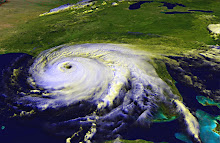Weather conditions are a big factor in the risk of wildfire. A good, steady rain soaks into the ground and vegetation. Grass and trees in the ground have plenty to drink, so the stems and trunks are full of water. A stray cigarette butt or lightning strike is less likely to spark a fire.
When it's very dry, grass and trees dry out, too. They get brittle, and any stray bit of ash can ignite a fire that will spread quickly through wooded areas. A lot of wind is also bad news. Have you ever blown on a burning cinder and watched it glow brighter or even flare up? If a breeze hits ash from a campfire or a hot spot from lightning just right, it can keep it burning and ignite dry materials nearby.
Wind also spreads fire. It pushes the flames across fields. It picks up burning ash and debris and carries it to new areas. That's one way that fire can cross a road or ditch that would normally act as a barrier.
The National Weather Service has a page on Fire Weather Conditions. Your state's Forestry Service or Fire Marshall's office website may also have information on fire dangers. Before you set off fireworks, burn trash and debris, or start a campfire, check the conditions and make sure it's safe. Check with your local fire department about burn permits. When you are putting out a fire on the ground, stir up the ashes; even if you douse the area with water, hot spots can remain deep inside the ash for days. Those hot spots can reignite and if the fire grows and spreads, it could put homes, human lives, wildlife and firefighters at risk.

No comments:
Post a Comment